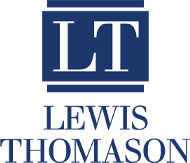Meeting twice a month, the youth court jurors — all of them local high school students — hear court cases involving select nonviolent juvenile offenders as part of a judicial diversion program. Operating under the principle of restorative justice, the jurors mete out flexible sentences such as community service, essay writing and restitution to youthful offenders.
Peterson described the youth court members as “compassionate, patient and wise beyond their years.” She would know, because in addition to being chair of the youth court board of directors, Peterson is also the mother of outgoing senior member Katie Cohen.
Cohen followed her mother to the podium, addressing the gathering at the Blount Partnership, and she offered testimony that youth court is as valuable to the jurors themselves as it is to the kids whose cases they hear.
“One thing I learned: Do not judge a book by its cover,” she said. “It’s a cliche, but it’s true.”
Cohen described — without giving names or other identifying details — one teen offender who appeared before the jurors with a sullen demeanor, answering questions at her hearing with surly, one-word answers. To all outward appearances, she was a girl on the wrong path with the wrong attitude.
When all was said and done, however, the teen not only completed the community service assigned to her by the jurors, but volunteered for more. Shortly thereafter, she came back to court — this time as a guest rather than an offender — crying, expressing gratitude to court members for the opportunity she’d been given.
“Knowing that I’m part of that kind of transformation makes me feel great,” Cohen said.
Blount County Juvenile Court Judge Kenlyn Foster said the statistics also bear out that the youth court program has been successful. Statewide, the stats indicate fewer than 4 percent of the kids who go through one of Tennessee’s 21 youth court programs end up reoffending.
Locally, Foster said only two cases to date have seen the offenders return to court. “We take them out of the judicial system and put them with their peers,” Foster said. “And a lot of times, their peers carry a lot more weight than we do.”
Read the Article by Mike Gibson in Blount County’s The Daily Times.
 Lynn Peterson, a Lewis Thomason shareholder and a Supreme Court Rule 31 Mediator, practices primarily in the personal injury, workers’ compensation, insurance defense, malpractice, employment law, and general litigation areas of law. Ms. Peterson has been a speaker at workers’ compensation and employment law seminars sponsored by lawyers as well as by employers. She has also participated in in-house training for large employers.
Lynn Peterson, a Lewis Thomason shareholder and a Supreme Court Rule 31 Mediator, practices primarily in the personal injury, workers’ compensation, insurance defense, malpractice, employment law, and general litigation areas of law. Ms. Peterson has been a speaker at workers’ compensation and employment law seminars sponsored by lawyers as well as by employers. She has also participated in in-house training for large employers.





